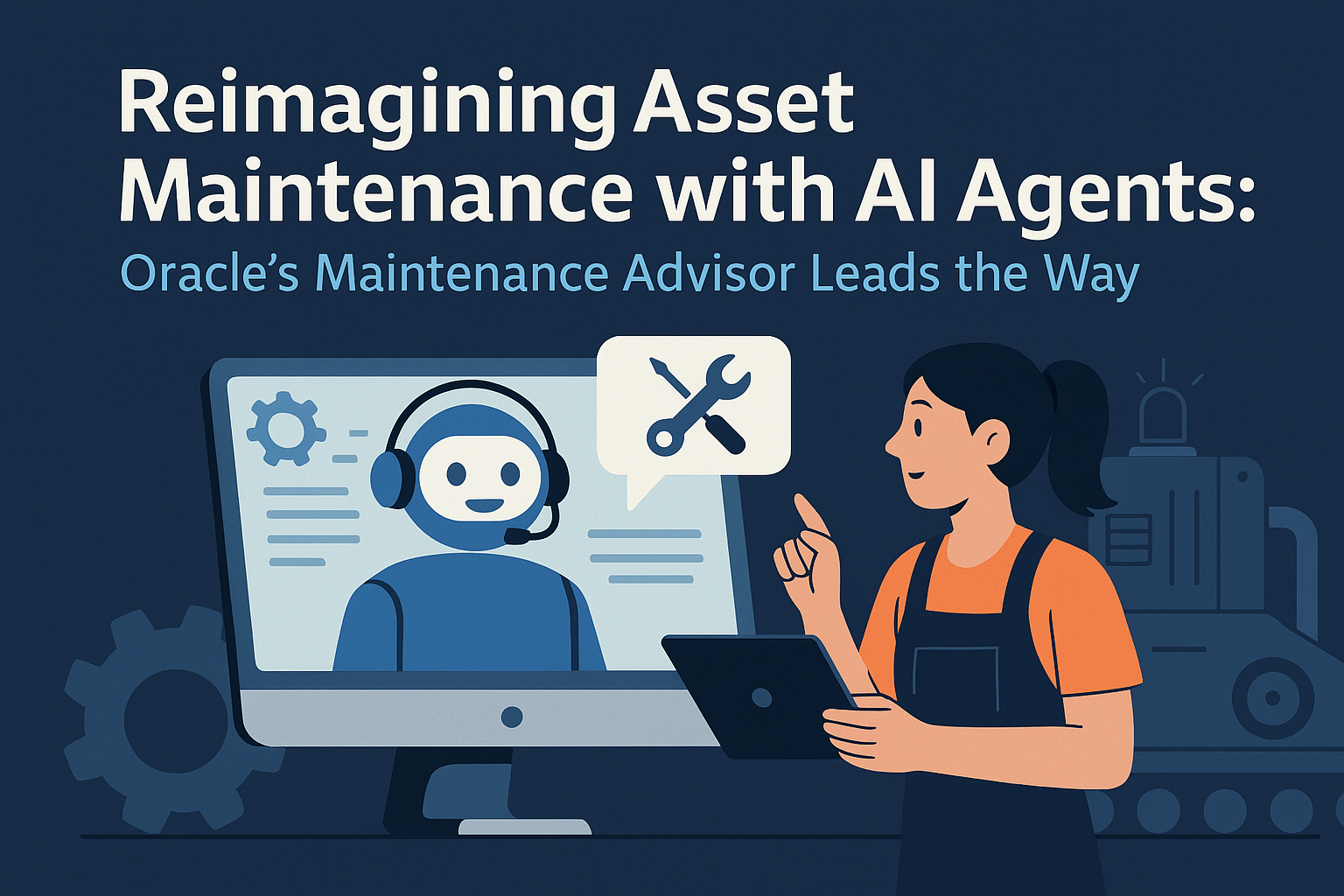The Evolving Role of the CFO: From Number Cruncher to Strategic Visionary

The role of the Chief Financial Officer (CFO) has undergone a profound transformation. No longer confined to the back office as the keeper of financial records, today’s CFO is a strategic architect, value creator, and driver of innovation. In an era defined by rapid technological advancements and shifting business priorities, CFOs are at the forefront of steering organizations toward sustainable growth and competitive resilience.
This evolution has expanded the CFO’s mandate, requiring mastery over emerging technologies, financial planning, sustainability initiatives, and talent cultivation. Let’s explore how CFOs can embrace this expanded role and deliver transformative impact.
Artificial Intelligence (AI) is revolutionizing finance functions, offering tools that enhance efficiency, accuracy, and strategic foresight. The integration of Generative AI (GenAI) into financial processes marks a significant leap forward, enabling CFOs to reimagine forecasting, budgeting, and reporting.
AI in Financial Planning and Forecasting
AI-powered tools can:
Analyze vast datasets in real-time, identifying trends and anomalies that human analysis might miss.
Improve forecasting accuracy by incorporating dynamic market variables.
Automate routine tasks, freeing finance teams to focus on strategic planning.
For example, predictive analytics can help CFOs anticipate cash flow trends, optimize working capital, and prepare for market disruptions with agility.
Generative AI: The Next Frontier
GenAI offers CFOs a powerful ally in decision-making:
Automating report generation with contextual analysis.
Crafting personalized strategies for customer engagement, tapping into what BCG identifies as a $2 trillion personalization opportunity.
Simulating various financial scenarios to guide capital allocation and risk management.
CFOs must act now to scale AI adoption, ensuring their finance teams remain competitive in a data-driven economy.
The modern CFO’s agenda revolves around value creation, transcending traditional metrics to integrate strategic priorities like sustainability and agile practices.
Sustainability as a Financial Imperative
Sustainability is no longer a peripheral concern; it is central to long-term financial success. CFOs are uniquely positioned to:
Embed sustainability metrics into performance management systems.
Align capital allocation with environmental, social, and governance (ESG) goals.
Drive accountability for corporate sustainability initiatives.
As the guardians of financial steering, CFOs have the tools to measure and demonstrate how sustainability drives profitability and stakeholder value.
Embracing Agile in Finance
Agile methodologies, once the domain of tech teams, are now reshaping finance functions. A selective approach to agile can:
Accelerate decision-making in fast-changing markets.
Promote cross-functional collaboration and innovation.
Enhance the finance team’s adaptability to evolving business needs.
By embracing agile principles, CFOs can foster a culture of continuous improvement and responsiveness.
A CFO’s tenure often begins with intense scrutiny and high expectations. Setting a strong foundation in the early days is critical for long-term success.
The First 90 Days
In this period, CFOs should:
Gain a comprehensive understanding of the finance function’s strengths and weaknesses.
Establish a clear vision for value creation that aligns with organizational goals.
Build credibility through quick wins, such as streamlining processes or uncovering cost-saving opportunities.
Your First Year as CFO
Beyond the initial phase, CFOs should focus on:
Leading transformation initiatives that position the organization for future success.
Building relationships with key stakeholders across departments.
Shaping a long-term strategy that integrates financial, operational, and strategic priorities.
Effective capital allocation is at the heart of a CFO’s responsibilities. By mastering the art of capital allocation, CFOs can:
Balance short-term returns with long-term investments.
Prioritize projects that align with strategic objectives and deliver sustainable growth.
Foster transparency in investment governance to build stakeholder trust.
Meanwhile, innovations in reporting allow CFOs to transform how financial information is presented and utilized:
Moving beyond compliance-driven reporting to provide actionable insights.
Leveraging advanced visualization tools to communicate complex data effectively.
Encouraging a strategic mindset within finance teams by reframing reporting as a value-driven activity.
The finance function is evolving, and so must its talent pool. CFOs must invest in attracting, retaining, and developing professionals equipped with both technical and strategic skills.
Addressing the Talent Gap
Key strategies include:
Recruiting from diverse talent pools to foster innovation and resilience.
Upskilling existing teams in digital tools, data analytics, and AI.
Promoting gender diversity to enhance leadership dynamics, as studies show that gender-diverse teams outperform peers in innovation and financial performance.
The Mandate for Leadership Development
CFOs must lead by example, demonstrating the collaborative and forward-thinking mindset needed to drive transformation. Mentorship programs, continuous learning opportunities, and career development pathways can help build a robust leadership pipeline within the finance function.
The modern CFO is no longer just the steward of financial health but a catalyst for innovation, strategy, and cultural transformation. By leveraging technologies like AI, embracing agile practices, championing sustainability, and cultivating top-tier talent, CFOs can position their organizations for success in a rapidly evolving business landscape.
As we look to the future, CFOs who rise to these challenges will not only drive financial excellence but also redefine what it means to lead in the digital age.
As the role of the CFO evolves from a financial steward to a strategic visionary, Virtual Delivery Centers (VDCs) emerge as a powerful ally in this transformation.
How VDCs Support CFOs in Their Expanded Role:
Data-Driven Financial Insights:
VDCs enable seamless access to advanced analytics tools and real-time financial data.
Provide CFOs with actionable insights to drive strategic decisions and optimize investments.
Efficient Resource Allocation:
On-demand access to global finance professionals ensures flexibility in resource management.
CFOs can reduce overhead while scaling expertise to meet business needs dynamically.
Technology-Driven Transformation:
Leverage VDCs to implement emerging technologies like AI, machine learning, and RPA in financial operations.
Streamline processes such as accounts reconciliation, compliance tracking, and risk management.
Enhancing Strategic Agility:
Quickly adapt to market changes with the help of VDC-enabled forecasting and scenario analysis.
Identify new revenue streams and cost-saving opportunities with advanced modeling capabilities.
Global Compliance and Risk Management:
VDCs ensure adherence to international standards and regulations through specialized compliance experts.
Monitor and mitigate risks in real-time with integrated tools and expertise.
Use Cases of VDCs for CFOs:
Optimizing Capital Structure: Analyze financing options and debt restructuring opportunities with precision.
Mergers and Acquisitions: Access M&A specialists for due diligence, financial modeling, and integration planning.
Sustainability Reporting: Utilize VDC resources to manage ESG compliance and reporting efficiently.
Why CFOs Should Leverage VDCs:
Strategic Focus: Free up internal teams from transactional tasks to focus on high-value strategic initiatives.
Cost Efficiency: Reduce costs through optimized workflows and on-demand expertise without long-term commitments.
Scalability: Expand capabilities rapidly to meet business growth or navigate disruptions.
Conclusion:
Virtual Delivery Centers empower CFOs to redefine their roles in a rapidly changing world. By adopting VDCs, CFOs can embrace innovation, optimize operations, and drive strategic initiatives that shape the future of their organizations.

Discover how Oracle’s Maintenance Advisor AI agent is transforming equipment maintenance and repair workflows. Learn its enterprise impact, real-world applications, and the future of AI in industrial operations.